
Over the coming weeks, Amylyx will undergo heavy discussions with regulators and community members to decide the next best steps for AMX0035 after the agent failed to meet its primary end point in its latest study.

Over the coming weeks, Amylyx will undergo heavy discussions with regulators and community members to decide the next best steps for AMX0035 after the agent failed to meet its primary end point in its latest study.
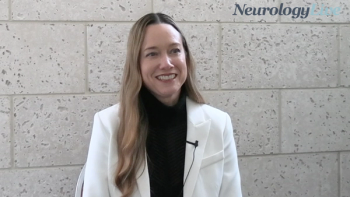
The director of the Comprehensive Care MS Center at Texas Tech University Health Sciences Center talked about findings from a subgroup analysis of Hispanic or Latin patients from the N-MOmentum trial presented at ACTRIMS Forum 2024. [WATCH TIME: 3 minutes]

The FDA will discuss TRAILBLAZER-ALZ 2, a large-scale phase 3 study that assessed the effects of donanemab in 1736 patients with early-stage Alzheimer disease over a 76-week period.

Mind Moments®, a podcast from NeurologyLive®, brings you an interview with Alcibiades Rodriguez, MD. [LISTEN TIME: 19 minutes]

New data from the phase 3b ENHANCE trial presented at ACTRIMS Forum 2024 demonstrated the smooth transition from intravenous anti-CD20 therapy to ublituximab in patients with multiple sclerosis.

The real-world, 3-year study is expected to include 30 males with SMA on risdiplam, an SMN2 splicing modifier, to assess fertility-related outcomes.
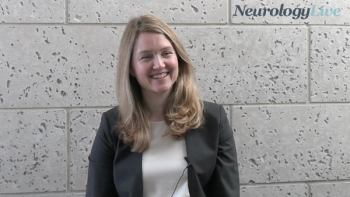
The staff neurologist at the Mellen Center for Multiple Sclerosis at Cleveland Clinic talked about findings from a real-world study assessing novel monoclonal antibodies in patients with NMOSD presented at ACTRIMS Forum 2024. [WATCH TIME: 4 minutes]

Findings from the recent phase 3b SMART trial affirm the safety and efficacy of intravenous onasemnogene abeparvovec (Zolgensma; Novartis) in spinal muscular atrophy when patient weights range from 8.5 kg to 21 kg.
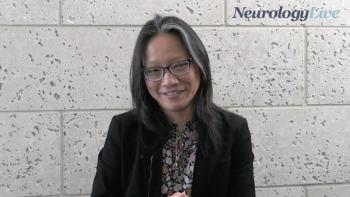
The director of the Multiple Sclerosis Program at the Cleveland Clinic’s Lou Ruvo Center for Brain Health talked about findings on a study comparing cognitive profiles in older patients with multiple sclerosis vs Alzheimer disease. [WATCH TIME: 5 minutes]

A machine learning model applied to real-world data in a multiple sclerosis study increased patient inclusion for future real-world studies on assessing patient outcomes and disability progression.

A recent study presented at MDA 2024 highlighted the evolving respiratory patterns in pediatric patients with Duchenne muscular dystrophy, offering crucial insights for effective respiratory management in this patient population.

A recent analysis of data from the US National Registry presented at MDA 2024 revealed gender disparities in pediatric-onset facioscapulohumeral muscular dystrophy, with girls experiencing more severe outcomes.
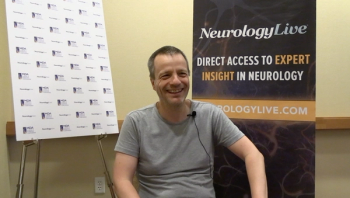
The professor of pediatric neuromuscular diseases at the University of Oxford provided insight on a study presented at MDA 2024 assessing the use of a magneto-inertial sensor in ambulant children with Duchenne muscular dystrophy. [WATCH TIME: 4 minutes]

A case series presented at the MDA 2024 revealed that ravulizumab infusion intervals show promise in stabilizing symptoms and reducing exacerbations in patients with generalized myasthenia gravis.
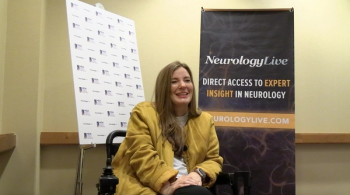
At MDA 2024, Brooke Eby shared her perspective as a patient with ALS and the ways to incorporate business approaches to improving clinical care and increasing enrollment for drug trials. [WATCH TIME: 5 minutes]

The cofounders and cochief executive officers at Amylyx Pharmaceuticals provided commentary on the incorporation of AMX0035 for patients with ALS and the upcoming PHOENIX confirmatory trial.

A recent study presented at MDA 2024 suggests that preoperative use of disease-modifying agents for patients with spinal muscular atrophy leads to less severe postoperative complications following scoliosis surgery.

The chief medical officer of NMD Pharma shed light on a newly announced phase 2 study assessing NMD670, a neuromuscular transmission enhancer, for patients with spinal muscular atrophy. [WATCH TIME: 4 minutes]

In a recent phase 2 trial analysis of viltolarsen presented at MDA 2024, findings showed improvement in forced vital capacity compared with standard care in patients with Duchenne muscular dystrophy.

A new meta analysis of 3 studies presented at MDA 2024 revealed that ataluren significantly slowed the decline in muscle function for patients with nonsense mutation Duchenne muscular dystrophy.

A recent post hoc analysis of the phase 3 EPIDYS trial presented at MDA 2024 revealed significant positive outcomes with givinostat, a histone deacetylase inhibitor, among patients with Duchenne muscular dystrophy.
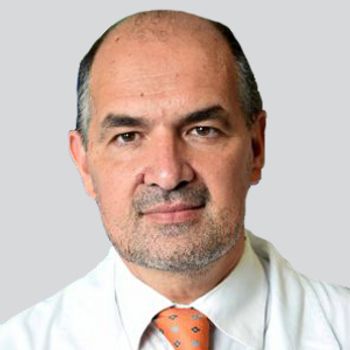
Median time to loss of ambulation for golodirsen-treated patients was 1968 days vs 1092 days for external control patients.

A new analysis of phase 3 MOVE-FA trial presented at MDA 2024 revealed promising outcomes for vatiquinone, an oral 15-lipoxygenase inhibitor, in patients with Friedreich ataxia.
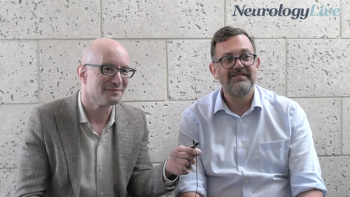
The associate professor of neurology at Icahn School of Medicine at Mount Sinai and associate professor of neurology at University of Colorado School of Medicine talked about the potential of redefining relapses in the landscape of clinical trials for multiple sclerosis. [WATCH TIME: 3 minutes]

Over a 52-week treatment period, treatment with SRP-9001 resulted in improvements in secondary outcomes of time to rise, micro-dystrophin expression, and 10-meter walk/run.
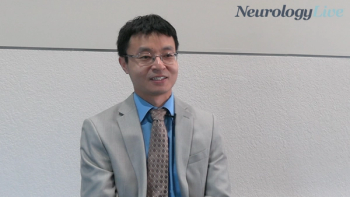
The assistant professor of neurology at The Ohio State University Wexner Medical Center talked about results from an ongoing study assessing biological aging in patients with multiple sclerosis using epigenetic clocks and p16INK4a. [WATCH TIME: 6 minutes]

Here's some of what is coming soon to NeurologyLive® this week.

Patients with Duchenne muscular dystrophy between ages of 6 and 24 months old demonstrated a similar safety profile on eteplirsen than those between 24 and 48 months of age.

In a real-world study, eterplirsen was safe for patients with Duchenne muscular dystrophy, with sustained or improved status in function.

Tadalafil shows potential in addressing microvascular impairment in Duchenne muscular dystrophy, with post-contractile MRI as a screening tool.